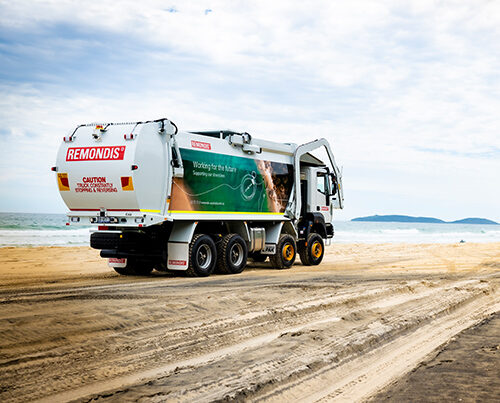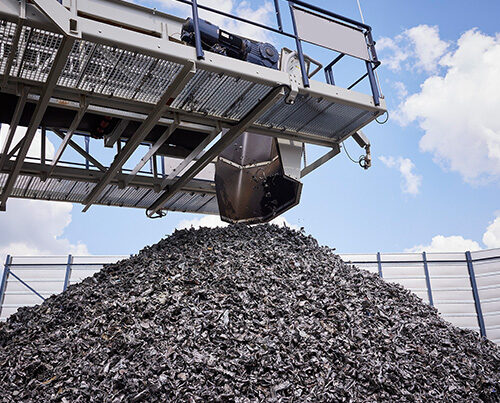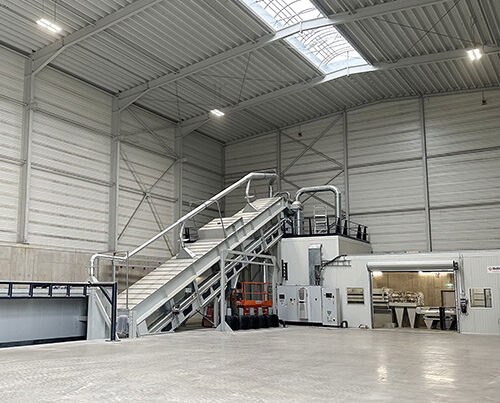An ideal site with a very special history
Kompostierungsgesellschaft Region Osnabrück, a REMONDIS joint venture more commonly known as KRO, not only supplies high quality soils, it also stands on historic soil. The history of this region stretches all the way back to the Roman Empire and Augustus – although few were aware of this until just recently. It was, in fact, purely by chance that archaeologists discovered this was the site of the famous Battle of the Teutoburg Forest – around 2,000 years later. This moorland, which Varus’ legions found such hard going, has proven to be the ideal location for one of Germany’s largest composting plants. Just a few kilometres from the site of the battle, KRO is now helping to preserve this moorland and others like it.
Greater efficiency, better fire protection
It all began with a fire at the old composting plant back in 2014. The flames had caused so much damage that the facility had to close down its operations. With this predominantly agricultural region having such a good infrastructure and being so conveniently located, the decision was soon made to rebuild the plant. The most has been made here of the experience gathered from the REMONDIS Group’s many other organic waste treatment plants to improve the technology and cost-effectiveness of the new facility. As a result, it is to be considerably upgraded with more efficient processes, better fire protection and high quality and more cost-effective building materials. Unlike the old facility which met the EU efficiency class IE3, KRO will only be using motors that meet the higher efficiency class IE4 in its new composting plant – leading to a further 10% reduction in carbon emissions compared to current standards.
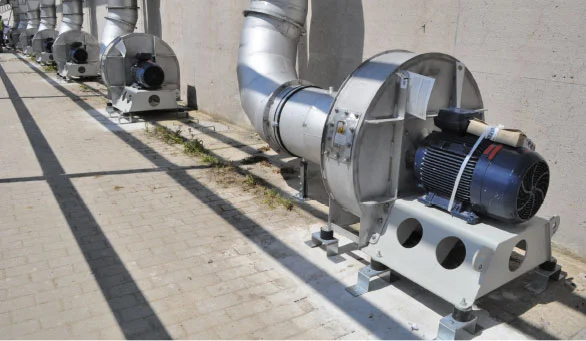
The new motors with the higher efficiency class IE4
Compost as a substitute for peat
As it is, the compost itself helps improve the quality of soils and contributes towards preventing climate change. Compost enhances agricultural land making it an ideal substitute for natural turf or peat. Peat is a raw material that is formed very slowly: on average, a moorland’s peat layer grows by just 1mm a year. 8,000 years, for example, were needed for the Teufelsmoor (Devil’s Moor) near Worpswede in the north of Germany to be formed.
Peaty moorland is extremely important for the environment as it can store far more carbon than rainforests. In fact, even though moorland landscapes only cover 3% of the earth’s surface, they absorb twice the amount of carbon than all the forests in the world. What’s more, the water-logged soils have a positive impact on our climate, as evaporation lowers the temperature. Using compost, such as that made in Bohmte, therefore, is a sustainable way of protecting our environment and curbing global warming.
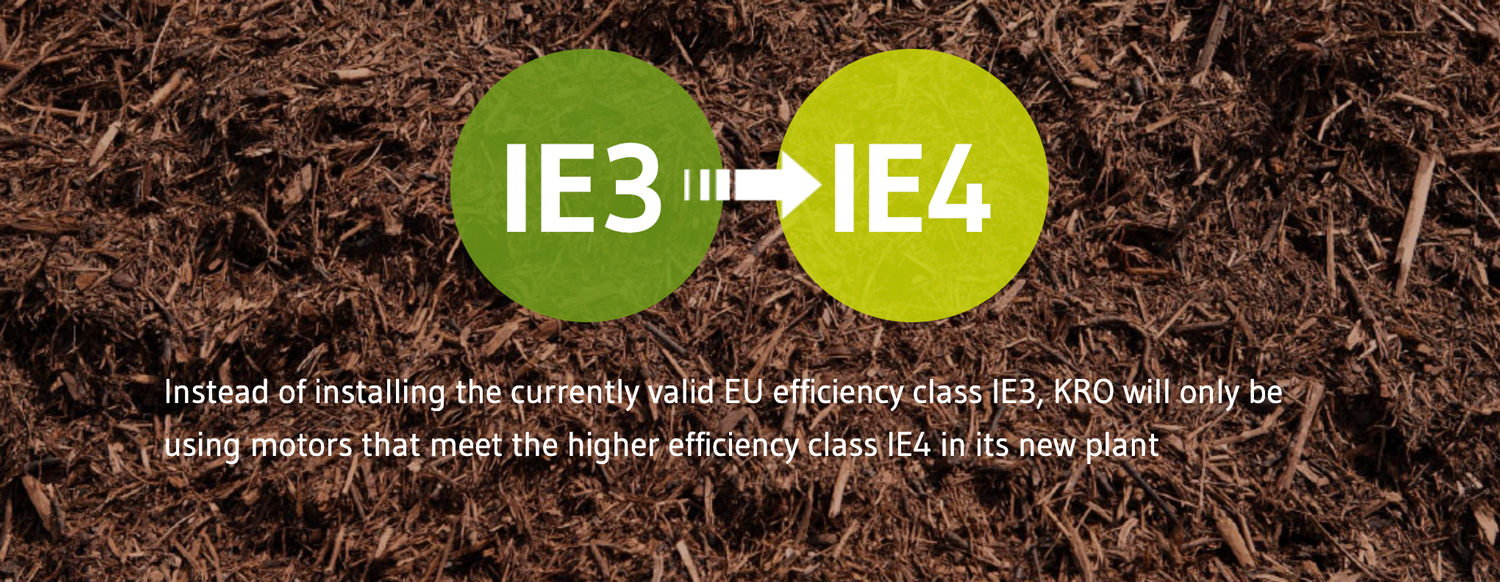
Annual capacity: 120,000 tonnes
The new plant will produce organic fertiliser that is far more environmentally friendly than many other fertilisers currently available on the market. When it has been completed, it will be able to handle an impressive 120,000 tonnes per year. Whilst plans are for it to only process biowaste from the organic waste bins, it will also be able to treat variable volumes of tree and plant cuttings. By building such a flexible facility, KRO will be able to respond to both market changes and its customers’ wishes. To begin with, it will be accepting materials from the city and district of Osnabrück, although this is expected to be extended to cover other regions in north Germany. All that is needed now is for the politicians to play their part.
“The fact that the new German fertiliser ordinance puts compost and liquid manure on par with each other makes no sense whatsoever. Indeed, this decision is likely to have a negative impact on the efforts currently being made to promote organic waste bins in order to close organic material cycles.”
Wolfgang Schöning, KRO
Politicians must step up
“The fact that the new German fertiliser ordinance puts compost and liquid manure on par with each other makes no sense whatsoever. Indeed, this decision is likely to have a negative effect on the efforts currently being made to promote organic waste bins in order to close organic material cycles,” explained KRO managing director, Wolfgang Schöning. KRO believes changes must be made here and made quickly. Politicians need to amend the German fertiliser ordinance so that compost keeps its special status as a sustainable and environmentally friendly soil improver. Unlike liquid manure, using compost does not impact negatively on groundwater. The laws passed to prevent climate change, to protect our lakes and rivers and to improve soils must not contradict each other. High quality compost is an environmentally friendly product that can help achieve all three goals.
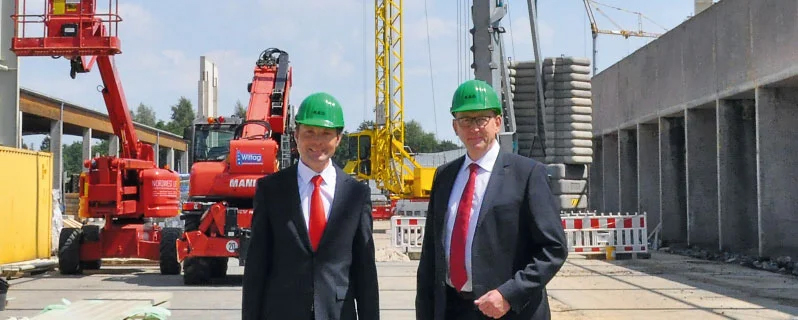
KRO Managing Directors, Arne Tiedemann and Wolfgang Schöning, at the site in Bohmte where the new composting plant is being built
Image credits: image 1: fuenf6: Stretz; image 2, 3: © REMONDIS







